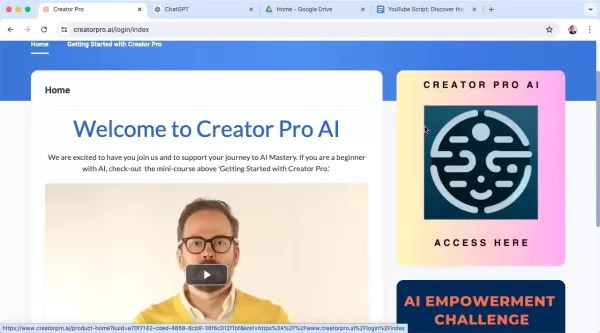OpenAI Unveils Advanced AI Reasoning Models, o3 and o4-mini

OpenAI introduced o3 and o4-mini on Wednesday, new AI models engineered to pause and analyze questions before answering.
OpenAI touts o3 as its most sophisticated reasoning model yet, surpassing prior models in math, coding, reasoning, science, and visual comprehension tests. Meanwhile, o4-mini balances cost, speed, and performance, making it a strong choice for developers building AI-driven applications.
Unlike earlier models, o3 and o4-mini leverage ChatGPT tools like web browsing, Python code execution, image processing, and image generation. Starting today, these models, along with o4-mini-high, which takes extra time to enhance answer accuracy, are available to OpenAI’s Pro, Plus, and Team plan subscribers.
The models are part of OpenAI’s push to outpace rivals like Google, Meta, xAI, Anthropic, and DeepSeek in the global AI race. Although OpenAI pioneered AI reasoning with o1, competitors have since released comparable or superior models, making reasoning models a key focus for AI labs.
Initially, o3 was not slated for ChatGPT release. OpenAI CEO Sam Altman hinted in February at focusing on a more advanced alternative using o3’s tech. However, competitive pressures likely prompted OpenAI to launch it.
OpenAI reports o3 achieves top-tier performance on SWE-bench verified (without custom scaffolding), scoring 69.1% on coding tasks. O4-mini scores 68.1%, while o3-mini scores 49.3%, compared to Claude 3.7 Sonnet’s 62.3%.
OpenAI claims o3 and o4-mini are its first models to process images effectively. Users can upload images like whiteboard sketches or PDF diagrams, and the models analyze them during their reasoning process, handling blurry or low-quality images and performing tasks like zooming or rotating.
Beyond images, o3 and o4-mini execute Python code in-browser via ChatGPT’s Canvas feature and search the web for real-time event queries.
All three models—o3, o4-mini, and o4-mini-high—are accessible through OpenAI’s Chat Completions API and Responses API, enabling developers to integrate them into applications with usage-based pricing.
OpenAI prices o3 at $10 per million input tokens (about 750,000 words) and $40 per million output tokens. O4-mini matches o3-mini’s pricing at $1.10 per million input tokens and $4.40 per million output tokens.
In the coming weeks, OpenAI plans to launch o3-pro, a compute-intensive version of o3, exclusively for ChatGPT Pro subscribers.
CEO Sam Altman suggested o3 and o4-mini may be OpenAI’s final standalone reasoning models in ChatGPT before GPT-5, which will integrate traditional and reasoning model capabilities.
Related article
 ChatGPT Turns LinkedIn Users into Monotonous AI Clones
The latest iteration of ChatGPT's image generation capabilities made waves with its Studio Ghibli-inspired artworks, and now LinkedIn users have spawned a fresh phenomenon: transforming professional portraits into AI-generated toy figurines.The Toy T
ChatGPT Turns LinkedIn Users into Monotonous AI Clones
The latest iteration of ChatGPT's image generation capabilities made waves with its Studio Ghibli-inspired artworks, and now LinkedIn users have spawned a fresh phenomenon: transforming professional portraits into AI-generated toy figurines.The Toy T
 Boost Business Growth with Creator Pro AI & ChatGPT Optimization
In today's competitive business landscape, artificial intelligence solutions have transitioned from optional upgrades to essential operational assets. Picture having access to a comprehensive AI toolkit, where each specialized application addresses s
Boost Business Growth with Creator Pro AI & ChatGPT Optimization
In today's competitive business landscape, artificial intelligence solutions have transitioned from optional upgrades to essential operational assets. Picture having access to a comprehensive AI toolkit, where each specialized application addresses s
 ChatGPT CEO Considers Possibility of Introducing Advertising Platform
OpenAI Explores Revenue Streams, Considers ChatGPT Advertising
OpenAI is evaluating various monetization strategies, with advertising in ChatGPT emerging as a potential option. During a recent Decoder interview, ChatGPT head Nick Turley adopted a c
Comments (3)
0/200
ChatGPT CEO Considers Possibility of Introducing Advertising Platform
OpenAI Explores Revenue Streams, Considers ChatGPT Advertising
OpenAI is evaluating various monetization strategies, with advertising in ChatGPT emerging as a potential option. During a recent Decoder interview, ChatGPT head Nick Turley adopted a c
Comments (3)
0/200
![NicholasWalker]() NicholasWalker
NicholasWalker
 September 4, 2025 at 2:30:32 PM EDT
September 4, 2025 at 2:30:32 PM EDT
OpenAI又出新模型了,但這次的o3和o4-mini真的能突破現有的推理限制嗎?還是只是換個名字的老套路?🤔 每次聽到『最先進』這種標語就讓人半信半疑...


 0
0
![TimothyEvans]() TimothyEvans
TimothyEvans
 August 25, 2025 at 1:33:49 AM EDT
August 25, 2025 at 1:33:49 AM EDT
Wow, OpenAI's o3 sounds like a game-changer! Pausing to think before answering? That's some next-level AI. Can't wait to see how it stacks up against other models in real-world tasks! 🤯


 0
0
![TimothyHill]() TimothyHill
TimothyHill
 August 21, 2025 at 11:01:16 AM EDT
August 21, 2025 at 11:01:16 AM EDT
The new o3 model sounds like a game-changer! Pausing to think before answering? That's like giving AI a moment to sip coffee and ponder. Can't wait to see how it tackles complex questions! 😎


 0
0

OpenAI introduced o3 and o4-mini on Wednesday, new AI models engineered to pause and analyze questions before answering.
OpenAI touts o3 as its most sophisticated reasoning model yet, surpassing prior models in math, coding, reasoning, science, and visual comprehension tests. Meanwhile, o4-mini balances cost, speed, and performance, making it a strong choice for developers building AI-driven applications.
Unlike earlier models, o3 and o4-mini leverage ChatGPT tools like web browsing, Python code execution, image processing, and image generation. Starting today, these models, along with o4-mini-high, which takes extra time to enhance answer accuracy, are available to OpenAI’s Pro, Plus, and Team plan subscribers.
The models are part of OpenAI’s push to outpace rivals like Google, Meta, xAI, Anthropic, and DeepSeek in the global AI race. Although OpenAI pioneered AI reasoning with o1, competitors have since released comparable or superior models, making reasoning models a key focus for AI labs.
Initially, o3 was not slated for ChatGPT release. OpenAI CEO Sam Altman hinted in February at focusing on a more advanced alternative using o3’s tech. However, competitive pressures likely prompted OpenAI to launch it.
OpenAI reports o3 achieves top-tier performance on SWE-bench verified (without custom scaffolding), scoring 69.1% on coding tasks. O4-mini scores 68.1%, while o3-mini scores 49.3%, compared to Claude 3.7 Sonnet’s 62.3%.
OpenAI claims o3 and o4-mini are its first models to process images effectively. Users can upload images like whiteboard sketches or PDF diagrams, and the models analyze them during their reasoning process, handling blurry or low-quality images and performing tasks like zooming or rotating.
Beyond images, o3 and o4-mini execute Python code in-browser via ChatGPT’s Canvas feature and search the web for real-time event queries.
All three models—o3, o4-mini, and o4-mini-high—are accessible through OpenAI’s Chat Completions API and Responses API, enabling developers to integrate them into applications with usage-based pricing.
OpenAI prices o3 at $10 per million input tokens (about 750,000 words) and $40 per million output tokens. O4-mini matches o3-mini’s pricing at $1.10 per million input tokens and $4.40 per million output tokens.
In the coming weeks, OpenAI plans to launch o3-pro, a compute-intensive version of o3, exclusively for ChatGPT Pro subscribers.
CEO Sam Altman suggested o3 and o4-mini may be OpenAI’s final standalone reasoning models in ChatGPT before GPT-5, which will integrate traditional and reasoning model capabilities.
 ChatGPT Turns LinkedIn Users into Monotonous AI Clones
The latest iteration of ChatGPT's image generation capabilities made waves with its Studio Ghibli-inspired artworks, and now LinkedIn users have spawned a fresh phenomenon: transforming professional portraits into AI-generated toy figurines.The Toy T
ChatGPT Turns LinkedIn Users into Monotonous AI Clones
The latest iteration of ChatGPT's image generation capabilities made waves with its Studio Ghibli-inspired artworks, and now LinkedIn users have spawned a fresh phenomenon: transforming professional portraits into AI-generated toy figurines.The Toy T
 Boost Business Growth with Creator Pro AI & ChatGPT Optimization
In today's competitive business landscape, artificial intelligence solutions have transitioned from optional upgrades to essential operational assets. Picture having access to a comprehensive AI toolkit, where each specialized application addresses s
Boost Business Growth with Creator Pro AI & ChatGPT Optimization
In today's competitive business landscape, artificial intelligence solutions have transitioned from optional upgrades to essential operational assets. Picture having access to a comprehensive AI toolkit, where each specialized application addresses s
 ChatGPT CEO Considers Possibility of Introducing Advertising Platform
OpenAI Explores Revenue Streams, Considers ChatGPT Advertising
OpenAI is evaluating various monetization strategies, with advertising in ChatGPT emerging as a potential option. During a recent Decoder interview, ChatGPT head Nick Turley adopted a c
ChatGPT CEO Considers Possibility of Introducing Advertising Platform
OpenAI Explores Revenue Streams, Considers ChatGPT Advertising
OpenAI is evaluating various monetization strategies, with advertising in ChatGPT emerging as a potential option. During a recent Decoder interview, ChatGPT head Nick Turley adopted a c
 September 4, 2025 at 2:30:32 PM EDT
September 4, 2025 at 2:30:32 PM EDT
OpenAI又出新模型了,但這次的o3和o4-mini真的能突破現有的推理限制嗎?還是只是換個名字的老套路?🤔 每次聽到『最先進』這種標語就讓人半信半疑...


 0
0
 August 25, 2025 at 1:33:49 AM EDT
August 25, 2025 at 1:33:49 AM EDT
Wow, OpenAI's o3 sounds like a game-changer! Pausing to think before answering? That's some next-level AI. Can't wait to see how it stacks up against other models in real-world tasks! 🤯


 0
0
 August 21, 2025 at 11:01:16 AM EDT
August 21, 2025 at 11:01:16 AM EDT
The new o3 model sounds like a game-changer! Pausing to think before answering? That's like giving AI a moment to sip coffee and ponder. Can't wait to see how it tackles complex questions! 😎


 0
0





























